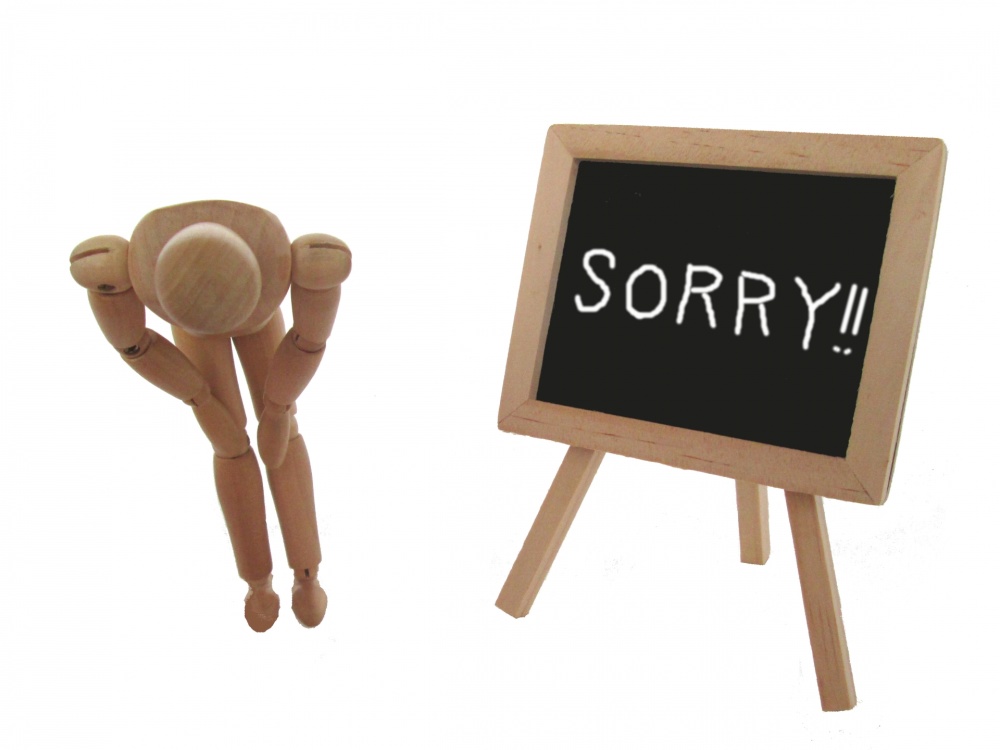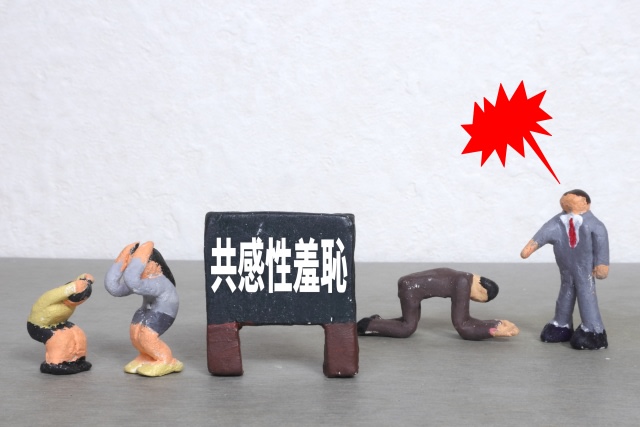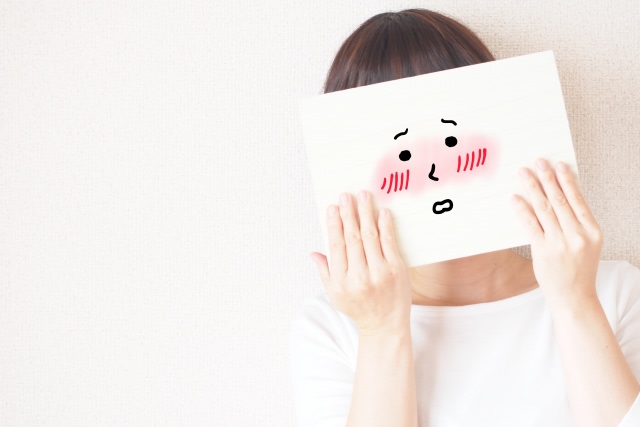Updated November 19, 2024
Careful! How to Avoid Disrespecting People in Japan
Japan's culture is pretty unique. And it contains norms and customs that may be unfamiliar to visitors from other countries.
As we’ve discussed in “Saying Sorry in Japan” and “Omiyage, The Gift-Giving Culture,” Japan is a country that values respect and consideration. Japan even has its very own culture of putting on a “public face” to hide one’s true feelings, an extension of the societal value of not offending others.
So, understanding and respecting the country's culture and traditions is crucial to avoid accidentally offending someone. From social etiquette to temple visits, there are lots of pitfalls and small actions carry significant meaning.
In this guide, we’ll highlight some common actions that are considered disrespectful in Japan to help you navigate your life here with ease.
Let’s get to it.
In this article: 📝
- Things You Shouldn’t Do in Japan
- Talking Loudly in Public
- Not Removing Your Shoes
- Pointing With Your Finger
- Blowing Your Nose in Public
- Not Respecting Lines and Queues
- Eating While Walking
- Not Showing Respect to Temples and Shrines
- Mishandling Chopsticks
- Not Bowing Properly
- Ignoring Gift-Giving Etiquette
- Tipping
- Entering Public Baths and Onsens Improperly
- Being Late
- Inappropriate Phone Use on The Train
- Leaving Garbage Inappropriately
- Crossing Legs in Formal Settings
- Concluding Words on What Is Considered Disrespectful in Japan
Things You Shouldn’t Do in Japan
Before we begin, it's important to note that the guidelines presented in this article are general suggestions, not strict rules.
As we’ve discussed in another post about Japanese non-verbal communication, maintaining public peace and not inconveniencing others is a big thing here and will generally serve you well in most situations.
We’re saying “generally” because there are specific scenarios where one’s actions can have more significant implications. We’ve carefully considered these situations and presented them in the list below, so let’s see what is considered disrespectful in Japan.
Talking Loudly in Public
As we’ve said, maintaining a quiet and respectful atmosphere in public spaces is important. Therefore, speaking loudly on trains, buses, or in restaurants is considered disruptive behavior.
The Japanese value a sense of harmony in their surroundings, which includes keeping the noise levels low. Even on public transport, where you expect more chaos, it’s common to see people quietly reading, using their phones with headphones, or napping.
Speaking on the phone is particularly discouraged in most shared public spaces, let alone being loud while doing so. If you must, it’s best to keep it as brief and quiet as possible. This cultural norm helps everyone comfortably share public spaces, so keeping your voice down is expected, especially in confined spaces.
Not Removing Your Shoes
Shoes are seen as unclean in Japan, and walking indoors with your shoes on will make everyone cringe. So always remove your shoes when entering someone’s home, certain traditional restaurants, and temples.
At most of these places, you can leave your shoes at the entryway, called “genkan”, and you’ll most likely be provided with indoor slippers.
This practice originated as a way to withstand the high temperatures and the humidity that comes with the heat. Traditional Japanese houses have raised flooring to allow air circulation as a natural cooling system, so the “genkan” is at a lower level than the house itself, which is why the shoes are left here. That said, there’s one more thing about a certain type of flooring you’ll encounter in Japan, the tatami.
Tatami, traditional straw flooring, requires special care, and stepping on it with shoes or slippers is viewed as careless. So, avoid wearing even indoor slippers on tatami mats, as it will be considered disrespectful.

Pointing With Your Finger
Pointing directly at people or even objects is widely considered impolite in Japan. This is, of course, when you use a finger. Using your whole hand is just fine.
In Japan, pointing can come across as aggressive or confrontational, which is why it’s best avoided. So, instead of pointing with your finger, use an open hand gesture towards something or slightly nod in the direction you want to show.
That said, when referring to yourself, it’s more polite to point your index finger towards your nose. This might seem strange at first, but it will quickly become second nature the longer you live in Japan.
Generally, using subtle gestures helps maintain a sense of politeness and avoids drawing unnecessary attention. This type of mannerism is actually an extension of the indirect way of communication in Japan, where being considerate of others’ feelings and avoiding overt gestures are highly valued.
Blowing Your Nose in Public
In Japan, blowing your nose in public is seen as unsanitary and disrespectful, even if you try to do it in the mildest way imaginable. So, if you need to blow your nose, excuse yourself and do it in a private setting, such as a bathroom, or simply away from other people.
Instead of blowing their noses in public, many Japanese people prefer to discreetly sniffle until they can find a private place. And once they’re done blowing their nose, they immediately get rid of the used tissue. Putting your used tissues out in public can also be extremely rude and inconsiderate of others.
Not considering the grossness aspect of it, there’s a bigger issue of spreading disease. So, if you have a cold or another contagious infection, it’s also a good idea to wear a mask in public spaces. This is very common among Japanese people and is another reason why they don’t often get sick.
Not Respecting Lines and Queues
Orderly lines are a key part of Japanese culture, especially when waiting for public transport or at convenience stores. It’s what makes the society function as well as it does, especially in more crowded Japanese cities like Tokyo.
Not respecting queues, as expected, is seen as inconsiderate. So, always look for the line and wait your turn patiently.
This respect for order extends from boarding trains to waiting at elevators. In busy stations, you’ll often see people forming neat lines even before the train arrives, ensuring an organized boarding process. Pushing forward and cutting lines is seen as rude and disruptive, and will bring negative attention from the public.

Eating While Walking
Eating while walking is generally frowned upon in Japan, as it’s considered poor manners. If you buy street food or snacks, it’s customary to eat it while standing near the vendor or in a designated eating area if there’s one instead of walking away.
This practice helps keep the public areas clean, as it reduces the risk of littering. Besides, finding a trashcan in Japan is often an impossible task, so finishing your food before walking away allows you to get rid of your trash right then and there.
Additionally, eating while walking can be seen as disrespectful to the food itself, as it suggests a lack of appreciation.
Japanese people care deeply about mindfulness and respect when it comes to food, and sitting down to enjoy a meal properly is often the right move, especially in small local restaurants where you may be facing the chef.
Not Showing Respect to Temples and Shrines
Temples and shrines are sacred places, and it’s important to show your respect when visiting them. Even if you don’t share the same religious beliefs, this is about respecting the people’s right to have a space where they can practice their beliefs.
So, avoid speaking loudly, taking selfies and inappropriate images in prayer areas, or ignoring rituals such as washing your hands before entering. At the entrance of most shrines, you’ll find a purification fountain (Chozuya) where visitors are expected to cleanse their hands and mouths.
Overall, you don’t have to walk on eggshells – just show respect to maintain the tranquil environment, dress modestly, and you’ll be golden. Remember, being mindful of these customs helps preserve the sanctity of these spiritual places.
Mishandling Chopsticks
Chopstick etiquette is taken seriously in Japan, and there are several important rules to follow.
For one, don’t stick your chopsticks upright into a bowl of rice. This resembles a funeral ritual where rice is offered to the deceased, and you don’t want those vibes at the dinner table.
Also, avoid pointing with your chopsticks, passing food down from chopstick to chopstick, or licking them, as these actions are all considered extremely rude. Passing food directly from your chopstick to another person’s chopstick is also quite taboo, as it mimics yet another funeral ritual.
When you need to put your chopsticks down, use the provided chopstick rest or place them parallel across your dish. Proper chopstick usage reflects your awareness of Japanese customs and your respect for the food culture, so be mindful.
Not Bowing Properly
As we’ve previously discussed in our “Greetings in Japanese” article, bowing is a common gesture of respect in Japan. It’s a vital part of social life here as it’s used in various situations, from greeting someone to showing gratitude or apologizing.
The depth and duration of the bow can convey different levels of respect. A slight bow is sufficient for casual greetings, while a deeper, longer bow is used for more formal occasions or to show sincere apologies.
Remember that failing to bow or bowing carelessly may come off as disrespectful. When bowing, keep your back straight and your eyes looking downward. The emphasis on proper bowing reflects the importance of humility and respect in Japanese culture, so mastering the bow will definitely make a positive impact on your life here.
Ignoring Gift-Giving Etiquette
Gift-giving is an integral part of Japanese culture, and as we’ve detailed in our posts like Omiyage and “White Day” in Japan, it involves a specific type of etiquette.
If you receive a gift, it’s polite to show appreciation and not open it immediately unless the gift-giver insists. This is a stark difference from the more Western approach of opening gifts in front of the person right away to show them how much you like the gift.
Presenting the gift with both hands as the gift-giver and modestly refusing before accepting a gift as the receiver are other common gestures that show humility and gratitude.
Additionally, declining a gift outright is considered rude. Even if you don’t want or need it, accepting and showing appreciation at the moment is the polite thing to do.
This extends to situations such as when your boss offers to buy drinks for the team at a nomikai drinking party, for instance. It might come off as impolite to outright reject it, and you also don’t want to be the one who sticks out in such settings. This especially used to be the case for older generations, although it’s becoming more common to politely decline. To play it safe, you could always just opt for a soft drink order instead of alcohol.

Tipping
Tipping is not customary in Japan and can sometimes cause confusion among servers.
Instead of tipping, show appreciation for good service with a verbal “thank you” or a simple smile. Most service charges are already included in the bill and tipping is not obligatory in Japan. Unlike in the United States, for example, servers in Japan are not expecting to receive tips, and most do not understand the culture of tipping.
This is because, in Japan, providing excellent service is considered a natural part of the job, and workers take pride in their work without expecting extra rewards. More importantly, since there’s no tipping culture, service workers get paid a living wage by the establishment employing them.
So, instead of tipping, showing your appreciation with a simple gesture or a thank you note should suffice.
Entering Public Baths and Onsens Improperly
As you may know, Japan has a big public bath and onsen (hot spring bath) culture. When visiting an onsen or a bath, it’s important to rinse thoroughly before getting into the communal bath.
Public baths are meant for relaxation, and entering without cleaning yourself first is not only considered unhygienic but downright disrespectful to others. At the bathing area, you’ll find stools and hand-held showers to wash and rinse yourself before soaking in the hot water.
The communal bath is for soaking and relaxation only, so washing yourself in the bath is also very much frowned upon, and understandably so.
One last thing to avoid being rude in a public bath is putting your towel in the water. Simply place it on your head when entering or place it near the bath. As long as you follow these guidelines and don’t splash around, you’ll be just fine.
Being Late
Unsurprisingly, the Japanese are big on punctuality. It’s a highly valued societal concept, and if you’re coming from a country where being late is accepted and even expected, you might have a hard time initially.
In Japan, many people arrive 5-10 minutes early for most meetings, social gatherings, or reservations, as being on time is seen as a sign of respect and reliability. Being late, even by a few minutes, can be seen as disrespectful and inconsiderate.
This applies to both professional and personal engagements, so you should exercise as much caution when attending social gatherings as you would for a business meeting or conference.
If you’re running late, remember that it’s courteous to inform the person waiting as soon as possible. Being punctual reflects your respect for others’ time and helps build trust. So, adhering to schedules and appointments and respecting time commitments are important for building a life and social circle in Japan.
Inappropriate Phone Use on The Train
We’ve already mentioned how rude it is to make phone calls on the train, but proper phone use on trains and other public transport deserves its own conversation.
For one, avoid phone calls on the train unless you get a call you have to take. Keep it short and simple. If you’re on a bullet train, move to the area between train cars to avoid disturbing others.
In addition to not making phone calls, it’s also advisable to put your phone on silent. It may sound extreme, but it’s common practice to maintain peace. You’ll even hear this announced on the trains.
Leaving Garbage Inappropriately
Japan has strict rules regarding garbage disposal, as we discussed in our articles about the missing trashcans in Japan and getting rid of oversized garbage. Leaving trash in inappropriate places is largely frowned upon.
As public trashcans are rare, it’s normal to carry your trash until you find a disposal area. If you have garbage and you arrive at an establishment, check if it’s appropriate to dispose of your trash there. Sometimes, the staff will notice and ask to dispose of it for you, but it’s best to ask first.
It’s also considered rude to leave unrelated garbage at a restaurant table after eating — disposing of it properly is seen as taking responsibility for your own waste. This practice helps keep the public spaces in Japan as clean as they are.
Crossing Legs in Formal Settings
In formal settings, such as interviews, important meetings, or ceremonies, crossing your legs is seen as disrespectful and can even give off the impression of being overly casual or dismissive.
So, instead, it’s recommended to sit upright with both feet flat on the ground, which is a neutral sitting position that can’t possibly offend anyone. This posture reflects a serious and respectful attitude, which is crucial in formal Japanese culture.
While you can relax in your seat and be comfortable at your desk during regular work hours, make sure to sit correctly during business meetings, as body language plays a significant role in communication, as I explained in my post on non-verbal communication.
Remember, maintaining a proper posture not only shows your respect for the person you’re speaking to but also conveys your interest and professionalism.

Concluding Words on What Is Considered Disrespectful in Japan
As you can tell by now, navigating Japanese culture requires understanding the customs and practices deeply ingrained in daily life.
From keeping the noise levels low in public to respecting chopstick etiquette and punctuality, each aspect contributes to the sense of harmony that’s highly valued here.
Following these guidelines shows your respect for the culture and people, and can enhance your experience in Japan as you’ll learn to avoid unintentionally offending others.
If you’re interested in reading another culture guide, check out our guide to Japanese restaurants and ordering to enhance your Japanese dining experience.
Get Job Alerts
Sign up for our newsletter to get hand-picked tech jobs in Japan – straight to your inbox.








